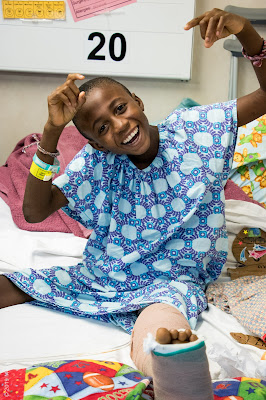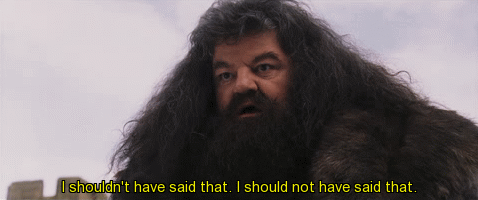He was becoming severely neutropenic - his white blood cell counts were far below normal. Essentially, his immune system was compromised for some reason. He had been perfectly fine before surgery; this is something we routinely check for a pre-op baseline. The only explanation our docs could come up with was that it was an uncommon and drastic reaction to a particular antibiotic he had been given. In digging a little myself, I could only find 3 or 4 similar cases mentioned in published literature. As soon as the link was made the antibiotics were stopped, but it took weeks for his system to recover.
Weeks during which he had to be "reverse isolated:" anyone caring for him had to gown and mask up, he couldn't have visitors, and we kept his side of the ward empty aside from him and his mother. If he left the ward, HE had to wear a mask. Any mild infection could have wreaked havoc while he was so compromised, and he still had an open wound on his leg which was taking its jolly time to heal. He still had casts on both legs, one of which was split so we could access his wound, then wrap it back up tightly together. Because of the risk of infection and his delayed wound healing, "Andy" wasn't nearly as mobile as he should have been this long after surgery. This was causing even more delays in his bone healing.
WARNING - MILDLY ICKY MEDICAL STUFF IN THIS PARAGRAPH
I haven't ever talked about our Ortho specialty much because I haven't seen much of it myself - so I'll explain a little what goes on. Most patients we see have a congenital condition that worsens as they grow older, and can become astoundingly severe in our older patients. By older, I mean teenagers. Kids' bones are different than an adult's; they're still growing, and they heal faster. Correcting these windswept or bowed legs requires cutting the bones, over-correcting the deformity, casting them in position then getting the kids to walk. That's the hard part. The weight and pressure from walking actually brings the fragmented bones together. It is a much more complicated and less successful process for adults, which is why our Ortho service is almost exclusively pediatric. Kids' bones have a little bit of give to them, which is why the Ponseti Method works so well to fix club feet.
ICKY STUFF DONE!
All this is to say...'Andy' had a rough go of it. He had painful, daily dressing changes, walking was still hurting a lot, and for a few weeks we couldn't even give him a high-five without putting on gloves. The first shift I looked after him, he was absolutely INCONSOLABLE when he saw me getting pain meds for his dressing change. Literally screaming and flailing his arms. His mother wouldn't make eye contact with me as I tried to indicate she should try to help calm him down. She sat, staring at the floor, as tears streamed down her son's face. I was bewildered, and my translator seemed bemused, but we did manage to get the meds into him. After a bit more wailing as I started the dressing, 'Andy' calmed down, distracted by some games on an iPad while I worked. A while later, when another translator was free, I was able to talk to the mother and get a better grasp on the situation.
Numerous tests had been done over the previous few days, and no one had really told her the results. It had been the weekend, the Orthopedic surgeon was gone, and likely everyone assumed someone else had already explained. It's also possible there was no translator available for her language. The mother, as a result, had assumed the worst she could imagine. Communication mishaps happen enough when there isn't a language barrier. It's so much more likely in this situation. To make a long story short, I was able to reassure the mother, our lovely Dr. Laura also came by to explain the test results in more detail, and mother was much happier - and much more helpful with meds and procedures. And she was always fastidious about hand hygiene, pumping dollops of purell onto her son's hands for him.
'Andy' remained a bit - how shall I say - moody? He could be your best pal one day then glaring and brooding the next. But I suppose that can be par for the course with a teenager.
THIS WAS A BROODING DAY.
THIS WAS A GOOD DAY.


Eventually, as expected, his test results improved enough that we could stop with the reverse iso precautions, and his wound began to heal, albeit slowly. Out of nowhere, too, he got a sudden burst of motivation. He went from refusing to walk the length of the corridor to kicking around a soccer ball and CLIMBING STAIRS a few days later.
I think the chance to see the bridge was pretty good incentive - big props to Captain Milo for making that happen.


I didn't see 'Andy' much over the last few weeks before I left, as he was out at the HOPE Center and only coming by for dressing changes and rehab a couple times a week. But I heard from colleagues that his wound is nearly closed, and he's not letting much hold him back now.
 |
| The long-awaited day of discharge from the hospital! |
Á la prochaine,
-D






